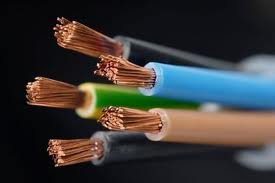Copper theft sent a curve ball with new regulations requiring ID
A new provincial regulation aimed at stopping copper thieves in their tracks has scrap metal dealers doubtful.
The new law came into effect yesterday, Monday, July 23, requiring the more than 60 BC scrap metal dealers to ask for and record the identification of anyone selling high-value metals like copper to them.
That information is then sent to the local RCMP detachment daily for review. If the dealer does not comply, they could face up to $100,000 in fines and up to six months imprisonment.
Grand Forks RCMP staff sergeant Jim Harrison said the new law will be useful in detecting trends in copper wire sales and thefts but one local scrap metal dealer would disagree.
The system will work much like the pawn shop system does, with one glitch. Unlike electronics, scrap metals don’t have serial numbers to prove ownership, said Aaron Fyfe, manager at Columbia Recycle Ltd. in Genelle, BC, one of the closest scrap metal dealers to Grand Forks.
Fyfe said he doesn’t think the new laws will make a difference.
“(New id requirements) is a big pain in the (butt) for us,” said Fyfe. “It won’t do anything to stop theft.”
You can’t prove anything once the copper is in the back of someone’s truck. With no serial numbers, there is nothing to prove whose it is … The recycling industry is angry about this law because it does nothing but create problems.
He said that even if he was suspicious of a where wire was sourced, the police can do nothing to prove whose wire it was.
Harrison said police do have other options to prove where wire has come from and they intend on using their forensic know how.
Harrison is hopeful the new regulations will help him and his force while policing the Boundary, where copper theft is a routine event.
Copper thieves target new home constructions, vacant homes and storage areas were the metal is known to be.
Copper is most commonly used in electrical wiring because of it’s great conductivity. Gold is an even better metal, but isn’t obviously as affordable, leaving little room for alternatives.
Besides stealing the copper, the act of stripping the wire out of homes can cause thousands of dollars in damages.
“It’s really destructive,” said Harrison. “It’s not just the wire itself but the associated damage that goes with it.”
A few years ago a thief cut the guide wires on a telephone pole making the pole potentially unstable, which created a public safety issue. Over this past year, copper theft has come down in Grand Forks and Greenwood due to a drop in the value of the metal and arrests of perpetual copper thieves.
Copper just isn’t worth the hassel at Columbia Recycle, said Fyfe. Not only is the source sketchy, but holding the metal at their site often creates problems. Fyfe said a few years ago someone broke into their yard, stole the copper wire and then tried to sell it back to them. The police could do nothing.
A few years ago Fyfe was getting quite a few customers dropping off scrap copper from Greenwood, Midway and Grand Forks. But now they get very few since the company lowered their rates to half of the current market value — trading today at $2 a pound (.45 kilograms) while the world rates are currently fluctuating between $3.50 and $3.80 per .45 kilograms.
Instead those people are now heading to Kelowna.
Copper striping is a public safety issue
While copper striping from telephone wires is the number one reason for telephone outages in BC, Grand Forks has not had any problems so far this year, said Shawn Hall, Telus media relations. The company has had 241 incidents of copper wire theft from January to June 2012 throughout BC.
There was an issue in the Boundary last year when the Pheonix repeater station was broken into and all the copper wire and fixtures were stolen, causing $100,000 in property loss and damage, said Harrison.
“When thieves cut live Telus cables, they are cutting access to 911, putting lives at risk,” said Ken Haertling, vice-president and chief security officer for Telus in a government press release. “They also cost our business customers, who rely on our connection for their credit card and Interac machines and force Telus to send crews out to repair lines, often in the middle of the night in dangerous conditions. This happened 380 times last year, and we’re seeing a similar pace so far this year.”
The regulations introduced today will be an important tool in the fight against this crime, making it harder for thieves to sell stolen material without imposing an undue burden on the majority of scrap metal dealers who are honest business people offering an important service.
The new regulations were created after extensive consultations with utilities, municipalities and scrap metal dealers. Copper thefts cause tens of thousands of dollars in damage to utility, municipal and public properties across the province every year.
























